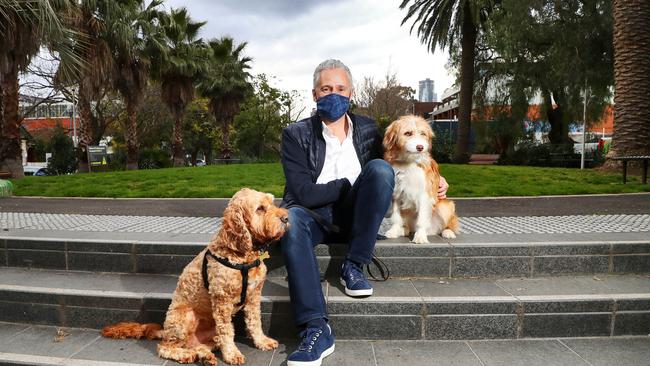Telstra, government take on scammers
The telco says Australians are being increasingly targeted by criminals impersonating Centrelink employees, especially during the pandemic.

The government and Telstra have teamed to launch a new cyber defence program, which will identify and block scammers pretending to be myGov and Centrelink employees.
The pilot program, announced Tuesday, will be used to fight malicious text messages, with Australians this year losing an estimated $6.4m to scammers pretending to be Service Australia representatives.
Telstra chief executive Andy Penn, who recently chaired the government‘s cyber industry advisory panel, said the new technology meant that texts would be blocked before they reached Telstra customers.
He said Telstra already blocks more than a million malicious spam calls on its network each month and a growing number of SMS messages.
“We completed a technical proof of concept, using metadata, to identify and reject illegitimate SMS spoofing using Telstra sender IDs on our network,” he said. “We’re focusing on SMS scams where scammers impersonate known and trusted brands like Telstra and Centrelink to redirect people to malicious websites.
“We‘re now scaling up this activity and we hope to have this in full operation by the end of the year. It will not eliminate the risk, but it does eliminate a lot of the activity.”
He added that working with the Australian Cyber Security Centre and Services Australia, Telstra created an approved list of official sources associated with particular SenderIDs, like myGov or Centrelink. Any message with a SenderID that doesn’t originate from an approved source will be blocked.
Defence Minister Linda Reynolds said she hoped the program would be scaled across the telco industry, beyond Telstra.
“Cyber crime is a national challenge that does require a national response,” she said. ”The Cyber Security Centre receives one report every 10 minutes, and this criminal activity can affect anybody in Australia, and this level of activity has increased significantly during COVID-19.
“Cyber criminals are getting better at adapting their tradecraft, and they‘re doing that in very malicious ways. They’re exploiting people’s concerns and their desire for information during COVID-19.
“While the pilot itself won’t stop all malicious text messages, it is an important step towards industry-wide protections for our smart devices.”
It comes after the telco provided investors with a full-year guidance update ahead of its virtual annual general meeting.
The telco said it expects to book an underlying earnings before interest, tax, depreciation and amortisation of between $6.5bn and $7b, down from $7.4bn in FY20.
That guidance assumed an estimated negative impact from the COVID-19 pandemic in fiscal year 2021 of $400m, about $200m more than the estimated negative impact of the pandemic on earnings the prior year.



To join the conversation, please log in. Don't have an account? Register
Join the conversation, you are commenting as Logout